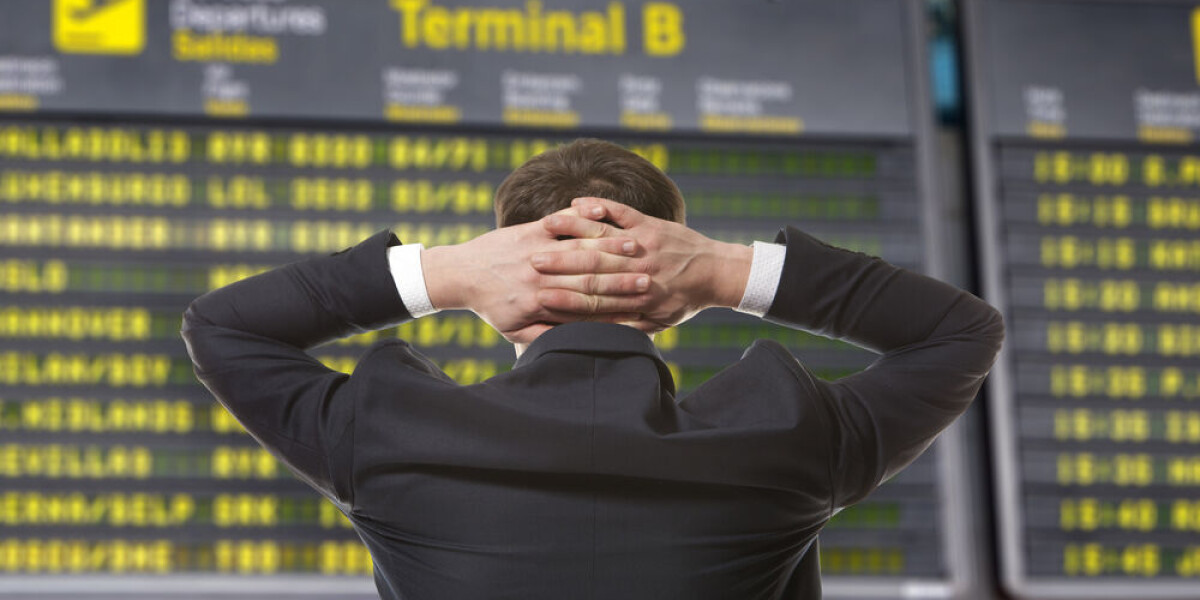Air traffic controllers in France are deemed responsible for almost a third of delays
A major air traffic control strike for this month was called off at the last minute
Andrey Burmakin/Shutterstock
France has regained its unenviable title of being the European country with the most delayed flights, after millions of passengers were impacted over summer.
French air traffic controllers were responsible for 31% of all air traffic control-based delays in Europe across the summer 2025 period according to the Eurocontrol organisation.
In comparison, air traffic controllers in Germany were responsible for 12% of such delays, Spain 10%, and Greece 9%.
In France, this is an increase of 10% from the summer 2024 period (where it was 21%).
Air traffic controllers held a summer ‘truce’ due to the Paris Olympic and Paralympic Games in order to help the events run smoothly, promising not to strike in the months leading up to and covering them, that covered much of that period.
Negotiations between French air traffic controllers and the country’s Civil Aviation Authority (DGAC) have been ongoing for several years, over several factors.
These include a change in the scope of an air traffic controllers’ roles and responsibilities, the number of controllers in France, pay and working conditions, and other elements.
A new agreement signed in 2024 between unions and the DGAC has seemingly done little to improve issues.
In Nice, a lack of air traffic control personnel has led to delays across the summer.
Delays down overall… but air traffic controllers responsible for more
At a second glance, the report may be slightly unfair on France.
It may be responsible for around a third of air traffic controller-based delays, but at the same time a third of all flights in Europe go through French airspace, therefore being partly supervised by controllers at French airports along their route.
However, when compared to other delay figures, the results begin to look poorer.
Overall, delays for all reasons decreased by 31% in Europe between June and September 2025 compared to the same period 2024, but delays from French air traffic controllers increased by 50%.
Between January and August 2025 and 2024, there was a 51% increase, showing the disruption is not only due to the busier summer period.
In comparison, German air traffic controllers reduced the number of delays attributed to them by 37% in summer 2025.
The trend for reduced delays outside of France was due to several factors, including better coordination between airports across Europe.
Out of 65 European airports that committed to an improved network operations plan (NOP) for the summer period, only five failed to reach their targets. Three of these (Brest, Reims, Paris) were in France.
Whereas 75% of flights from London Heathrow departed as scheduled this summer, only 54% at Paris Charles de Gaulle managed to do so.
Otherwise, better weather conditions meant delays due to extreme weather conditions were reduced by 41%.
Several factors, including strikes
Alongside the lack of air traffic controllers available in France, there are several other elements that affect their effectiveness.
This includes outdated infrastructure and IT systems, as well as an ever-increasing capacity of flights further stretching the number of employees.
One further reason is the impact of strikes in the sector.
France has topped the list for air traffic controller strikes in Europe for the last 20 years.
Strikes do not only affect journeys to and from French airports, but due to the high volume of traffic over French airspace, can cripple the entire European network.
Major strikes in 2023 and 2024 saw thousands of flights delayed.
A two-day strike in July 2025 by France’s minority air traffic control unions saw up to a million passengers delayed over the weekend in Europe and more than €100 million in losses for the aviation industry.
The agreement on reform in the sector between French air traffic controllers and the DGAC signed in 2024 is set to gradually improve the sector, however it seems that air traffic controllers remain unsatisfied.
A major strike for earlier in this October was only called off at the last minute following last-ditch negotiations, however discontent still looms in the sector.
Further strikes – including from the majority union SNCTA, which covers around 70% of controllers from collective bargaining agreements – remain a possibility.
Keep an eye out for these changes
The report only adds to the list of bad news for passengers flying to France.
A shake-up of services offered by low-cost carriers such as easyJet and Ryanair have seen bases for both airports (in Toulouse and Bordeaux respectively) close in the last year.
Ryanair’s winter 2025 and summer 2026 schedule has seen services to regional French airports reduced, with the airline claiming the change is due to increased flight taxes imposed in France at the beginning of 2025.
Elsewhere, it will soon be harder to claim compensation through French courts if an airline does not pay you back compensation you believe you are owed, in a bid to ease up congestion in the legal system.
Finally, a reduction to possible compensation is likely, as the European Parliament is set to debate major structural reform in the sector.
The changes include how much compensation is offered for delays, but also contains elements regarding increased baggage limits, better information about delays, and more help from airlines to help passengers reach their final destination in the event of a delay.
